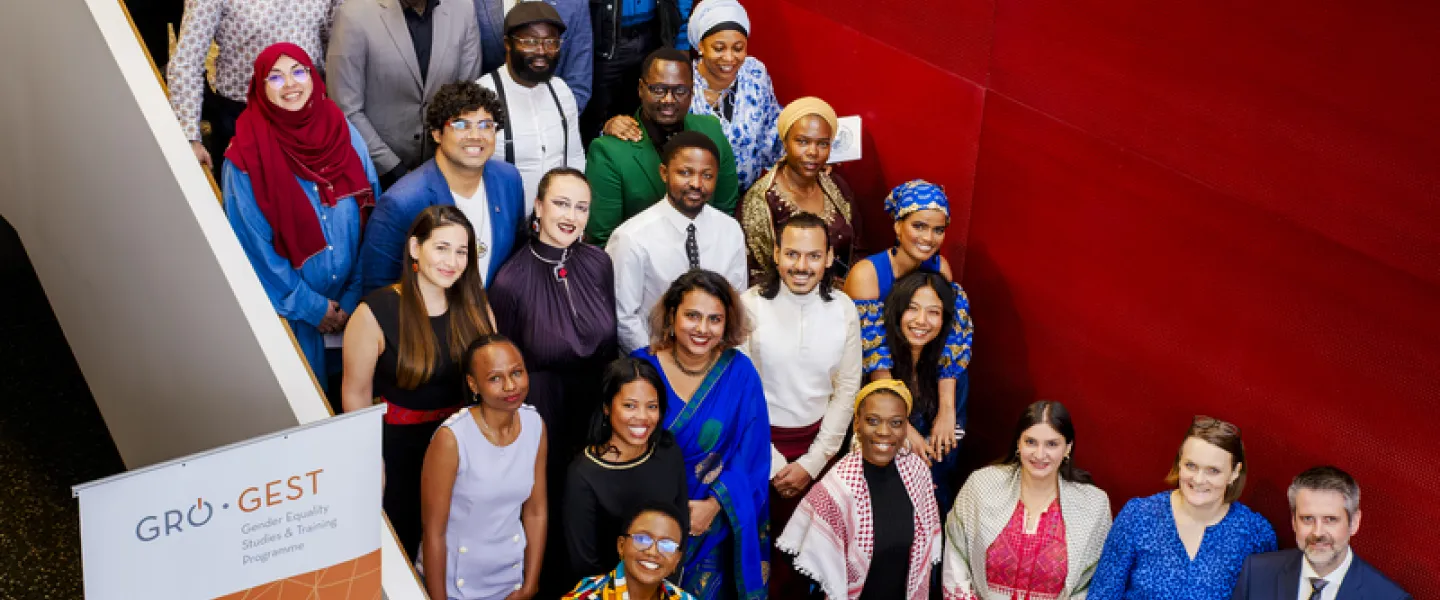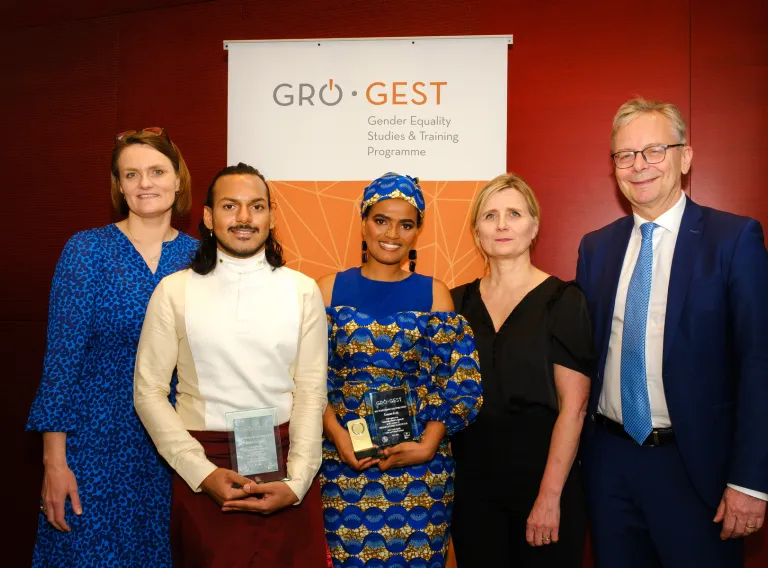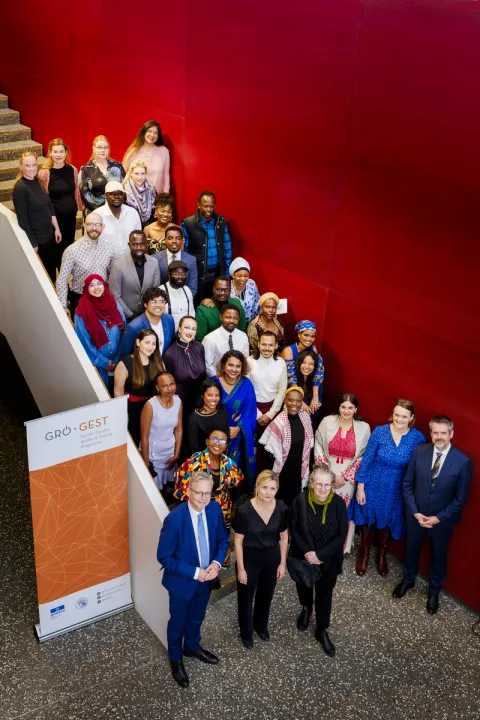
The GRÓ GEST program at the University of Iceland celebrated, on Friday 24 May 2024, the graduation of its 16th cohort of young gender equality professionals and emerging scholars from the following countries: Uganda, South Africa, Ghana, Kenya, Palestine, India, Malawi, Sri Lanka, Bosnia & Herzegovina, Nepal, Pakistan, Rwanda, Madagascar and Liberia. The class of 2024 is made up of passionate gender equality practitioners from diverse backgrounds within government, non-governmental organizations, the media, arts, academia and other fields.
During their studies, the fellows completed six interdisciplinary modules: Theories and Concepts in Gender Studies; Project Development Tools; Gender, Violence and Security; Gender, Labour and Migration; Gender, Environment and Climate Change; and the Final Assignment. Many international and Icelandic scholars have contributed to the programme.
It is the 16th graduation of GEST, and the fifth graduation of GEST as a part of GRÓ Centre for Capacity Development, Sustainability and Societal Change. With this year’s cohort of 23 graduating fellows, the total number of GEST alumni is 241, adding to an ever-expanding alumni network.
The graduation ceremony
The graduation ceremony was attended by GEST fellows, supervisors, staff, and guests. Irma Erlingsdóttir, the Director of GRÓ GEST, delivered the welcome remarks, and Jón Atli Benediktsson, the Rector of the University of Iceland, and Martin Eyjólfsson, the Permanent Secretary of State of the Ministry for Foreign Affairs, addressed the ceremony. Operations Manager Guðrún Eysteinsdóttir, Ólöf Garðarsdóttir, the Dean of the School of Humanities, Védís Ólafsdóttir, Project Manager and Nína Björk, Director General of GRÓ Centre handed out the diplomas and rewards from the University of Iceland and the GRÓ Centre.
In his address Jón Atli Benediktsson stated that as students and advocates of gender equality, the graduates have not only acquired expertise, which will benefit people and organizations in their home countries; they have also contributed to the University of Iceland community. Martin Eyjólfsson emphasized that gender equality is a corner stone in Iceland´s international development cooperation and pointed to the important role GRÓ GEST programme plays in that respect. He also underlined that gender equality does not come about of its own accord and that Iceland owes its position on top of the World Economic Forum List to generations of women who fought for it.
Irma Erlingsdóttir thanked, in her opening address, all those who have contributed to the programme both in Iceland and abroad. She highlighted that GEST has built a diverse team of instructors who represent broad fields of knowledge and expertise from both the global North and South. She also noted that while gender equality remains a core value of the GEST programme, it has expanded its intersectional reach by focusing on issues relating to disability, race, class and LGBTQI+.

